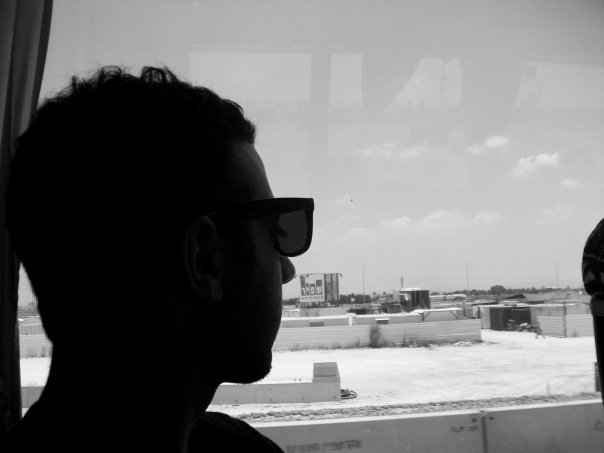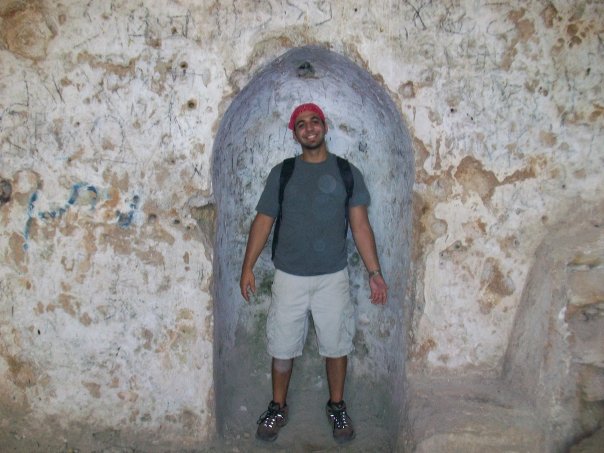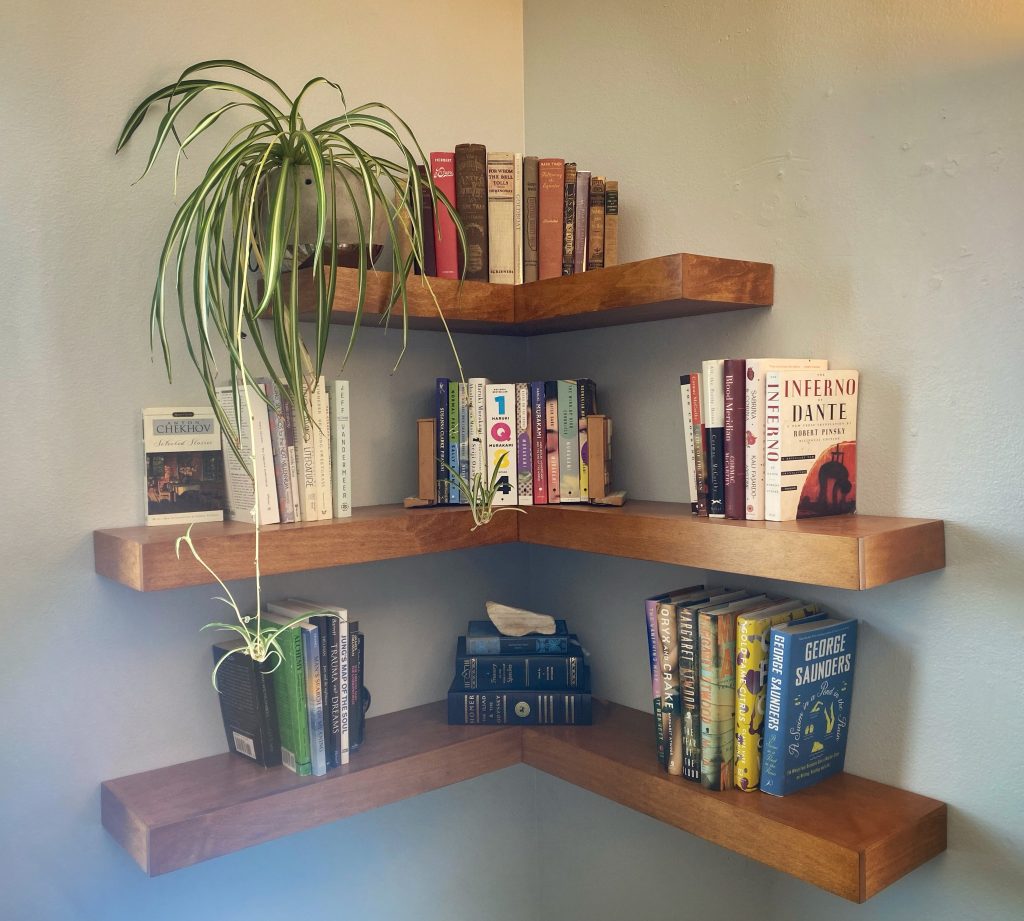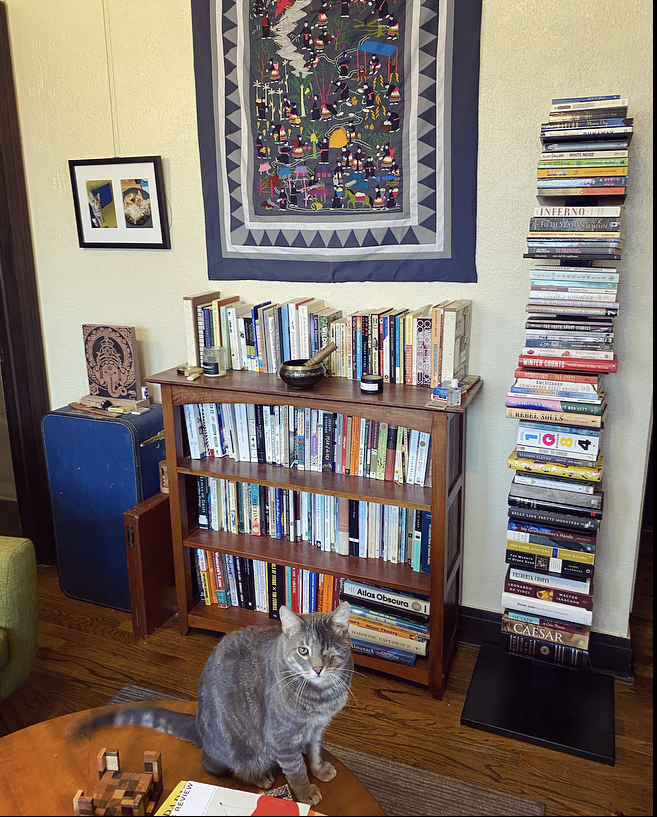
Here’s a photo from me in Israel 15 years ago, riding a bus through the beautiful landscapes and connecting to the ancient land of my people.
I remember returning to the US with a deep connection to Israel and to my Jewish heritage.
I loved the Mediterranean sea, the rolling desert landscapes, the forests, the mountains, the ancient buildings of Jerusalem and Old Jaffa, the modernity of Tel Aviv, the kind people on the kibbutzim, the culture of Judaism surrounding me.
At that time, I knew nothing that I do now about the history of Israel and Palestine.
And I am still learning each day.
A couple weeks after the atrocities of Oct 7 and what transpired after, I needed to take a social break because of the utter madness in the world, so I could come back with clear thoughts to attempt to move conversations and actions towards rational peace.
I shared my first thoughts about Israel-Palestine back in November 2023.
Since then, I’ve read so many books and articles and I’ve watched hundreds of hours of videos from Israeli, Jewish, Arab, and Palestinian scholars to try and understand what is going on over there.
Because I constantly wonder…
How do we get out of this mess?
It has now been eight months since October 7th.
I follow a pretty equal split of pro-Palestinian and Zionist friends and accounts to keep my brain balanced. And I must say… the world is wild.
I see so many viewpoints, perceptions, and deconstructions of the same situation. In the fog of war, I think there is a degree of madness on all sides BUT when real atrocities are happening in the world, you have to put your energy, support, and voice towards the people with the least power and the receiving end of the most violence—which are the Palestinians.
I am very pro-Palestinian, anti-Hamas.
I am very pro-Jewish, and I reject Zionism.
I am pro-Israel existing and pro-Palestine existing.
Reality is complex.
The world is not black or white. The dehumanization we see in all directions is tied to black-and-white thinking, when we all know the complexity of reality is in the nuance. It’s in the grey space.
I said “I reject Zionism” and I would also say I am “anti-Zionist,” but I understand that the words “anti-Zionism” spark a fear in many Jews because of a variety of perceived definitions.
Let’s unpack this.
Through my many conversations with all types of Jews, I notice many people define Zionism in their own way versus how it is actually and practically enacted in the world today. I think many people’s personal definitions of Zionism are beautiful and derived from a valid place (“a safe place for Jews”) but again, we must live in this world of reality and consequences.
Before we go further, what is Zionism?
According to Wikipedia (and this definition aligns with most other websites or organizations I looked at):
“Zionism (Hebrew: צִיּוֹנוּת Tsīyyonūt, derived from Zion) is a nationalist movement that emerged in the 19th century to enable the establishment of a homeland for the Jewish people in Palestine, a region roughly corresponding to the Land of Israel in Jewish tradition. Following the establishment of the modern state of Israel, Zionism became an ideology that supports “the development and protection of the State of Israel”.”
There are a thousand different ways to discuss this complex and historical topic, but for now, I would like to point out just a handful of important points that were helpful for me to understand what’s going on in Israel-Palestine, the desire for Zionism, and the oppression of Palestinians. This is NOWHERE near a totality of information of the history of this land and these people. The political, military, social, religious, and human elements are vast, deep, and complicated.
I’m also not a journalist or academic, just a Jewish guy who likes to dig deep, but I can recommend books and historians for each of these subjects, or you can do a Google search, if any point sparks curiosity. So, let’s dig in:
- Zionism is a political philosophy, ideology and movement, developed in the late 1800s, which sought to create a home for the Jewish People in the land of Biblical or Greater Israel.
- From when Zionism began in the late 1800s to the founding of Israel in 1948, the majority of the population living in the land of Palestine were Palestinian Arabs (including Muslims, Christians, Bedouins, as well as a small minority of Jews). Their ancestors had lived on the land for hundreds, if not, thousands of years. These were people with homes, communities, farms, children, grandparents, schools, shops, olive and orange groves, gardens, and more. In Palestine, this multi-religious population lived together on the land in relative harmony for generations. The population of Jews in the land was less than ~10% in the late 1800s and early 1900s.
- 2000+ years ago, Israel was the ancient homeland of the Jews before the Romans destroyed the city of Jerusalem and expelled the Jewish people from Judea and Samaria (the land of Israel) in AD 70. The Bar Kokhba Revolt happened in 132 AD which really cemented the massacre and expulsion of Jews by the Romans. The Romans renamed the land Syria-Palestina. This is where we get the name Palestine in the English language.
- After the Roman expulsion, this led the Jews into thousands of years of living in Diaspora across the world. To be a Jewish person before 1948 was to live across many nations spanning Europe, North Africa, Russia, Central Asia, the Middle East, the US, Latin America, and beyond. There were true Jewish cultures in many places. Some cultures thrived, and of course, many others experienced the absolute horrors of antisemitism manifest throughout. Pogroms, massacres, exile, the Holocaust. Most of these horrors took place in Europe.
- There were also many places, especially in the Middle East and North Africa, where Jews lived fairly peacefully and were well-integrated into society. These Jews spoke Arabic and often identified strongly with their Moroccan, Tunisian, Egyptian, or other culture of origin. Interesting fact: 40% of Baghdad’s population was Jewish in the early 1900s. Baghdad even had high-level Jewish politicians such as Sassoon Eskell, a Jewish-Iraqi who was the first Minister of Finance in the Kingdom of Iraq and regarded in Iraq as the Father of Parliament. Many argue the actions of Zionism are what caused the peaceful Jewish existence in Iraq and other Middle East and North African countries to crumble.
- This next part is a flyover. Going back in history, the Arab Conquest took over the land of Palestine in the 600s, then the Crusaders/Ayyubid/Mamluk (and other) empires took over from 1099 until the Ottomans took over in 1516. The Ottoman Empire ruled over the land of Palestine from the 1500s until 1918 when the British took colonial control over the land. From 1918 on (and of course, starting the decades before that), the situation gets super messy with British colonial rule and influence until the Founding of Israel AND the Nakba in 1948. Then US influence reigns supreme until today.
- As you can see, the history and population of the land is complex and tangled. There was always a Jewish connection and presence of the land. There was a thriving population of Palestinian-Arab people for a long, long time. And for sure, the previous hundreds of years were mostly Palestinian-Arab people living there—in their homes, in their villages, on their farms, and on their land.
- It’s important to note that the Palestinian-Arabs were not brought in from somewhere else. They were a historical population who converted religions over time and whose bloodlines trace back to the land, alongside (and probably intermingled with) whatever percentage of Jews lived there as well. A common argument today is that there was no previous cohesive “Palestinian” identity or state before all the actions of Zionism and the formation of Israel, but even the concept of nation-states and modern political identities have only recently evolved and solidified.
- Returning to the late 1800s, Theodor Herzl, the founder of the Zionist movement, called Zionism in his writings a “settler” and “colonizing” movement because he was aware that Palestinians were the majority who were living in the land and that they had to be forcefully removed and replaced to make a state for the Jews.
- This expulsion and displacement ideology was continued by Israel’s Zionist founder, David Ben Gurion. When all of his classified war diaries were released three decades after the founding of Israel (and the Nakba) in 1948, it was explicitly clear that he wanted to displace and cleanse Palestinians from the land in order to have a Jewish ethnostate in the Land of Israel.
Okay. That was a lot, and really just a small snippet of some important historical points for the land of Israel-Palestine. But I do think it’s important to be aware of that information.
Now, back to my thoughts.
First of all, I definitely understand the desire for Zionism, especially with the thousands of years of trauma, massacres, and violence towards Jews from many cultures.
But Zionism—in its actual form that we see in the world today—is a political ideology enacted through the violent displacement of an inhabited land’s native population and it cannot exist without oppression and ethnic cleansing.
That is why we see what we see in Gaza, in Israel, in the West Bank.
For example — the violent settlers in the West Bank are not really the result of a fringe right-wing group, but a symptom of the cause of the state of Israel. The settler’s actions and ideologies are born from the innate goal of “re-taking” the land of Greater/Biblical Israel (as they say, Judea and Samaria instead of Gaza and the West Bank) for Jewish sovereignty.
If this is the simple truth of the situation, there will never be peace in a state who’s core foundation of existence involves the ethnic cleansing and displacement of another people.
So, what do I want?
Do I want a safe place for Jews? Yep.
Do I want a safe place for Palestinians? Yep.
Is Zionism the answer for either of those? Nope.
Even if the ideology of Zionism is desirable in the mind of Jewish people in order to create a ‘safe homeland for Jews,’ if the enactment of that ideology is based on the violence and displacement of the people who were living on the land, then I reject that ideology.
I believe we need a new word, a new vision for the future—for Israelis and Palestinians to live on this land together in a peaceful way.
If I understand that BOTH Israelis and Palestinians live on the land, BOTH have historical connection to the land, and we are attempting to find the incredibly difficult way for BOTH people to live in peace on this land—then the word or ideology for that is not Zionism.
I believe both cultures have a right to the land of Israel-Palestine.
Jews have been indigenous to the land of Israel for thousands of years (and their constant presence, whether small or large, and desire to return to Israel has been documented since ancient times). If you don’t believe that, I’m happy to point you towards information. You can argue it is their ancestral land.
Palestinians have been indigenous to the land of Palestine for hundreds and hundreds of years (and it can be argued that they have ancestors that tie back to the land for thousands of years as well, since the people who have lived on this land are so multi-cultural and historically complex). If you don’t believe that, I’m happy to point you towards information. You can argue it is their ancestral land.
I believe both cultures need to learn about the other side’s history and trauma.
Zionists and most Jews need to learn about the suffering, violence, and historical traumas of the Palestinian people. It is not the narrative we were raised with or taught.
Most non-Jews and especially white Western protesters and Palestine supporters need to learn about the historical trauma, suffering, and violence towards Jews. It extends much further than just the Holocaust.
Both side’s histories are deep, tangled, and complex.
And the lack of understanding is why these cycles of violence continue to happen.
Now, I’ve shared my (very simplified) thoughts on the tangled history and nature and effects of Zionism at this point. But, it is now June 2024. So what are my thoughts and hopes for moving forward?
I want the genocidal violence towards Palestinians to end.
I want restorative justice for Palestinians and a peaceful life for Israelis, Jews, and Arabs.
I want Israelis and Jews to feel safe.
I want Palestinians to feel safe.
I want the Israeli hostages back (and sadly Netanyahu and the Israeli government don’t actually want that).
But, I believe there are real power dynamics in the world and therefore we must be loud and put the most pressure on the ones with the most power committing the most damage.
That is Israel.
(With the United States unending support, of course.)
And it is absolutely vital to note:
Being critical of Israel, Zionism, or the Israeli government and its actions does not make you antisemitic or anti-Jewish.
Being pro-Palestinian or supportive of the liberation of the Palestinian people does not make you antisemitic either.
Antisemitism makes you antisemitic.
When I (and most others) say Free Palestine, we mean free the Palestinians from the Israeli government’s occupation. Not that Israelis or Israel or Jews should be eradicated.
You can denounce Hamas, chant Free Palestine, love Jews, have Israeli friends, and critique Israel all in the same breath.
And not be antisemitic.
We should condemn real antisemitism (violence and negative actions towards Jews for being Jewish, not for being Zionist or supporting the state of Israel, nor supporting Palestinians or their movement of liberation).
Because Jews are awesome.
And Palestinians are awesome.
I can say, with complete honesty and confidence, not a SINGLE of the hundreds and hundreds of friends I have who scream ‘Free Palestine’ are antisemitic and want anything bad to happen to Jews.
It is the tangled knot of Zionism, Judaism, and the state of Israel that creates this perception.
And we must untangle that knot.
For the situation we are currently in, I believe we must end Israel’s occupation of Palestine.
There will be no peace for either side without an end to the occupation.
We don’t get hostages back without practical moves towards the end of the occupation.
We don’t stop the violence towards Palestinians or stop the growing power of radical Hamas without the end of the occupation.
Because yes, Hamas sucks.
But if you bomb the hell out of innocent Palestinian people, you don’t get hostages back or the end of Hamas. You get a more radical Hamas 3.0—and it will get worse in the years to come.
More violence. More fighting. More carnage. For all.
To free the hostages, we need a ceasefire and a hostage deal.
To stop the violence towards Palestinians, we need a ceasefire and a hostage deal.
To create some sort of equitable future, the current concept of Zionism is not the way.
To have peace, we must acknowledge the past, stop the occupation, and work towards restorative justice for Palestinians so we can have peace for Israelis and Palestinians to come.
Again, the ones with the power are the ones who need to influence change. So that means western/American Jews must influence the US government (as well as Israel) and Jews in Israel must influence the Israeli government.
This is why I’m a huge supporter of Standing Together, an organization of Israelis and Palestinians on the ground in Israel doing the work to protest the Israeli government and the violent actions committed by Israel, battling the settlers in the West Bank, and fighting for a new vision of peace in Israel-Palestine—check them out. There are many organizations doing incredible work out there, but I think this is a great one to be aware of, support, and get involved with at this time.
I think they are working towards a new vision and a new story for the future—one of progress and hope—for Israelis and Palestinians to live on this land together in a peaceful way.
I know that every word and sentence here will be perceived differently by each person. Movements towards peace are difficult, tricky, messy, and often nearly impossible. But I hope we can both learn and act fast—and move towards real peace.
Shalom. Salam. Peace.


